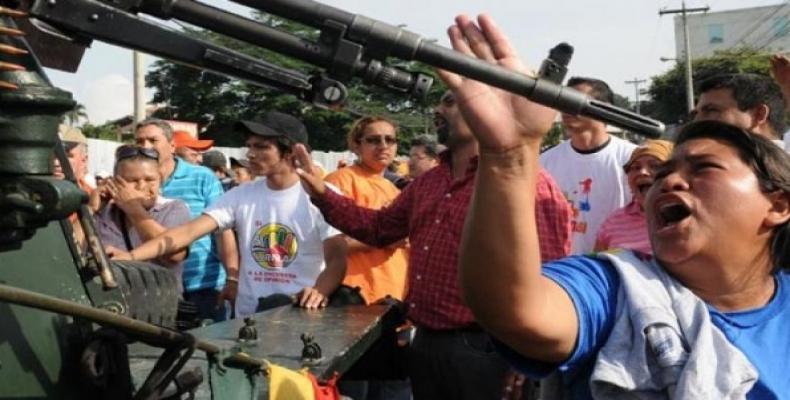Tegucigalpa, October 30 (teleSUR-RHC)-- The International Federation for Human Rights spoke up on Thursday for victims of the 2009 military coup in Honduras, calling for investigations into abuses to continue despite the case being dropped by the International Criminal Court.
“Crimes of political persecution, assassination, forced disappearances, sexual and gender-based crimes, and forced displacement were committed in a systematic way as a result of the 2009 coup d’etat,” the international human rights organization, also known as FIDH said in a statement. “The coup destroyed the rule of law in Honduras.”
The call for crimes to be investigated comes after the International Criminal Court ruled Wednesday that it will not investigate the coup in Honduras. While the ICC stated that prosecutors do not want to “minimize” the rights violations committed in Honduras, these abuses do not constitute crimes against humanity.
FIDH and its affiliated Honduran human rights organizations Cofadeh and Ciprodeh said they “deeply” lamented the ruling, calling attention to cases of serious human rights abuses in the months following the coup.
“It is unacceptable to leave the victims of the mentioned crimes without access to justice and reparation," the organizations stated.
The organizations echoed social movements in calling for the establishment of an independent international body, backed by the U.N., to lead investigations. Such a body, such as the International Commission Against Impunity in Honduras or CICIH proposed by popular movements to investigate corruption, could lead a probe into coup-related abuses in the absence of the Honduran government or ICC launching such investigations, FIDH said.
On June 28, 2009, a U.S.-backed military coup ousted democratically-elected President Manuel Zelaya, flying him to exile in Costa Rica. Zelaya, of the Liberal Party, had planned to hold a non-binding poll on whether to hold a referendum in the upcoming election on convening a constituent assembly to rewrite the Honduran constitution.
FIDH and its affiliates raised particular concern about these human rights violations in the Aguan Valley, where heavy militarization in the wake of the coup, along with a deep culture of impunity, has compounded repression and criminalization of farmers.
The organizations demand that grave crimes such as extrajudicial killing, sexual violence, and political persecution, among others, be investigated and prosecuted.
According to the ICC investigation, coup-related human rights abuses are “directly attributable” to the de facto coup regime, which implemented various restrictions on freedom of movement, assembly, and expression with special police and military enforcement.


